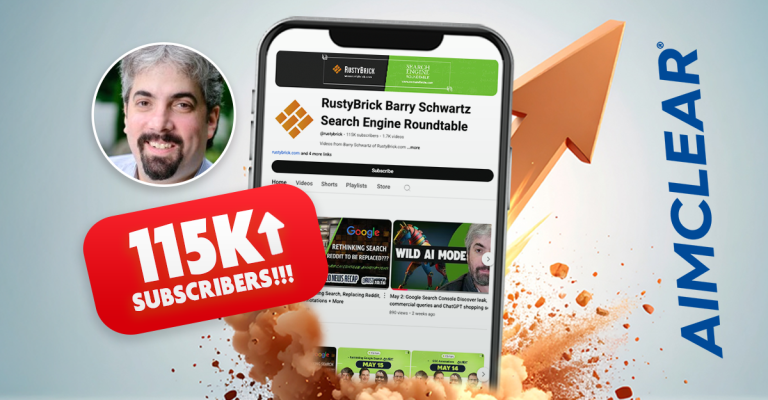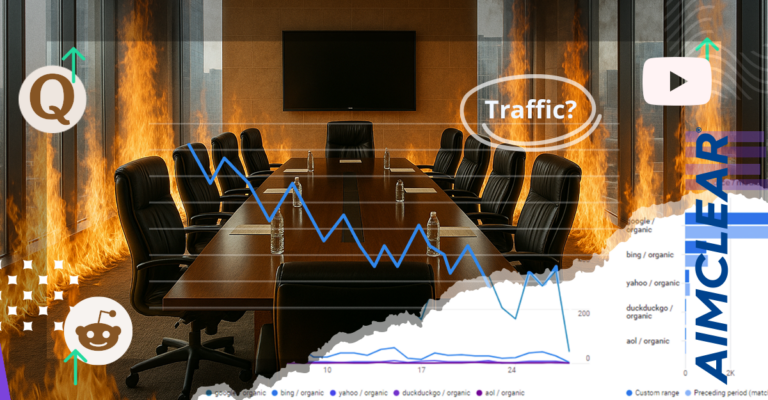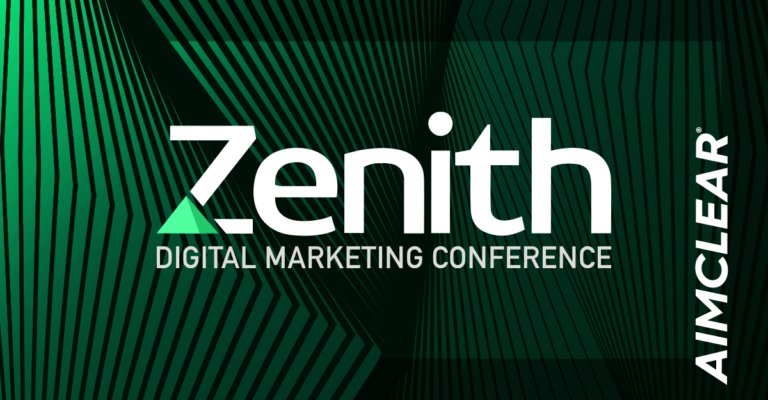Carb-loading is common for runners prior to a large event. This morning bright and early, marketers carbed-up for what was sure to be an stimulating Keynote featuring Google’s industry ambassador, Matt Cutts, affable head of webspam. PubCon fed attendees carbs, caffeine and sugar to set up the keynote, which was fully appropriate. The continental breakfast conference fare was only the first course of a serious first-thing-in-the morning dish session.
The Las Vegas Convention Center keynote hall was jam packed and ready. After the keynote yesterday during which Jason Calacanis expressed his *ahem* frustration with Google (alluding to the Wizard of Oz & the man behind the curtain… may have said Google is/was a bad partner…), we’re sure the audience was chomping at the bit to throw some burning questions at this Googler. 🙂

Matt literally ran to the stage as he was introduced, displaying eagerness and enthusiasm to share what Google’s been up to with the PubCon 2013 crowd. Cheers ensued. Matt began by waxing nostalgically of the very first PubCon back in 2003. Ah, the genesis… when Brett Tabke (PubCon owner and industry impresario) didn’t always wear suits and the “Pub” in PubCon didn’t stand for “publishers.” But, Matt Cutts was here to talk about the moves Google has undertaken so search marketers can better predict what Google will be doing in the future.
State of the Index:
- Moonshot changes – Larry Page challenges Googlers to think of the impossible and find ways to make them possible.
- Knowledge Graph
- Voice Search has improved (yes, indeed!)
- Conversational search – the ability to do queries over a session. For example: when a user asks Google, “Who is the prime minister of Turkey?” they get a SERP, if the user then queries “How old is he?” Google recognizes the pronoun and understands who the users is asking about and presents yet another relevant SERP.
- Google Now
- Deep learning – multiple layers of neuro networks – using thousands of computers
Cutts then pointed out Google’s desktop voice search.
- Users can select the microphone icon, voice queries, and Google will talk back to you.
- For example: “Will it rain tomorrow”
- Google knows where users are, will pull their location data, and provide the weather forecast.
Users can then ask: “What about Duluth, MN?” Or “How about this weekend?” and Google will follow the initial query and know what you’re asking.
Core Quality Changes:
- Hummingbird (idea behind hummingbird change is: for natural language queries some words don’t really matter to Google when it comes to serving up the correct answer. Previously, Google tried to match every word. Google is moving towards short-tail queries. “the fact is, it doesn’t affect it [search] that much…it’s not going to rock your world like Panda or Penguin” – it will affect 90% of queries but the impact is minor (but… 90%?! That’s a lot!)
- Panda Softening in some instances
- Detecting/boosting authority (eg: medical vertical – if you’re an authority in the medical space, Google wants to push that up higher in the SERPs.)
Webspam Changes:
- Penguin 2.0 and 2.1 – why 2.1? Spammers were like “oooh, that didn’t affect us! Ha!” – so Google turned it up… 🙂
- Algorithms for very spammy queries, like “payday loans”
- Advertorials/native advertising – Google has no problems with these, as long as you denote it clearly. You will get spanked if you have links that pass page rank with out denoting they’re paid, however.
- Continuing action on spam networks (of course!)
- How does Google know they’re doing great?
- Cutts shows a image from a blackhat forum: “Who wants to punch Matt Cutts in the face?”
- Audience LOLs
If spammers are unhappy in the blackhat forums… the Webspam team at Google knows they’re doing a great job. 🙂 Haters gonna hate.
Some rights reserved by dougvdotcomCommunication:
- New videos for malware/hacking
- Concrete examples in guidelines
- >100 speaking events, Hangouts on Air, webmaster office hours
- How Search Works
Future of Search:
- Machine Learning (surely this is a move to stay ahead of IBM’s Watson)
- Mobile is HUGE – SRSLY HUUUUUUGE
- Look at YouTube as an example – in 2011, 6% of traffic to YouTube came from mobile, in 2012 it was 25%, now in 2013 40% of traffic is via mobile.
- Mobile is growing faster than we understand
- In many countries mobile traffic will surpass desktop by next year.
- Social/Identity/Authorship
- If you get a ton of RTs & +1s will you get more authority? Well, not RIGHT NOW – but over time, yes. These are indications of authority and will influence Google SERPs.
- Reflects the fact that you are someone people listen to, an authority – this tells the search engines you are someone who should be ranking, and ranking well.
Webspam Trends:
- Tackling things most people wont see – Hacking. Google is working hard to figure out the next-gen of hacking.
- …. (hot topics abroad) child sex abuse imagery, etc. – Google doesn’t want people to be able to find child porn. Ever.
- No toolbar PageRank scheduled for rest of the year.
Cutt’s Advice:
- Mobile. GET READY. SRSLY
- If you’re still using a site that uses Flash, you are potentially not being seen on many mobile phones or giving users a good experience. Remember, at Google, it’s all about the user experience from SERPs to websites.
- Learn about requestAutocomplete
- Annotate your forms
- People hate forms – requestAutocomplete, you can markup your forms. “You can literally do it in an afternoon.”
- Autocomplete forms in Chrome will be rolled out in the next few months.
- Be a channel that supports that
- Ad-heavy pages above the fold
- Will have more impact for Russian or Arabic pages
- If you have a page with lots of ads above the fold ask yourself: is this the best user experience?
- Tightening Authorship (~15% reduction)
- Not just about markup but the quality
- Rich Snippets may now depend on site quality
- Reputable sites will get Rich Snippets – lower quality will not
- Google will get smarter on JavaScript
- Fetch, execute, and render from JavaScript
- Google’s starting to get smarter with this
- Testing with limited sites
Worth doing now:
- Webmaster tools (duh)
- Subscribe:
OK! Now for the audience Q&A:
Audience Question(AQ): When you talk about Google Plus signals, you specifically say “+1s” can you discuss Google’s take on +1 versus comments, shares, etc. when it comes to signals?
Matt Cutts(MC): I talk about +1s because it’s emblematic. It doesn’t make a change in general rankings, but for personalized search yes, it does have an impact. I talk about +1s specifically because that’s easy. It’s still short term. But Cutts is very bullish on social signals.
AQ: Can you speak more about “negative SEO?”
MC: Negative SEO – with Penguin if there’s blackhat spam going on, it doesn’t just remove, but can have a negative affect. We haven’t gone as far with Penguin because we don’t want to.
Last year, we introduced the disavow tool, if you think someone really has it out for you, use that. Though, it’s [negative SEO] not as big a phenomenon as people think.
Brett Tabke: Did you catch Monday’s keynote?
MC: I was in the air, so no, I haven’t seen it, but I did hear that: someone called someone a liar… Evil… Not a good partner…
Let me put it to the crowd… * crowd applauds *
Everyone wants the blood-thirst. I’m not going to smack down Jason. But my considered opinion will take 5-7 minutes…
Tabke: We’ll wait… 🙂 * audience cheers *
Matt even has slides prepared… 🙂
Appendix:
I have huge respect for Jason, he’s smart, passionate, and want’s to do the best he can with his company.
Matt’s response to Calacanis’ tweet that Google could’ve rolled out the updates slowly & a lot of “babies got thrown out with the bathwater.”
Cutts said he agreed. The first launch of Panda was pretty substantial. It was a jolt.
But as to why Google couldn’t roll out Panda slowly… (and shown changes… “I think he meant ‘shown changes’ to partners.”) here’s Google’s inside story:
Back in 2010 they were working on spam & content farms… It was a big problem, made even bigger when in January, 2011 the media BUZZED about how content farms and spam would be Google’s downfall.
It’s painful to read those… when you’re already aware and working on the problems as quickly as you can.
So, Google introduced the Personal Blocklist – a Chrome extension allowing users to block certain sites. Content farms and spam were so annoying to users nearly 200K downloaded and use the extension.
So… Where does Mahalo come into this picture?
Well, Business Insider called out Mahalo as hilariously useless. “The bad news for Jason Calacanis was the Mahalo site was laughable. And then they said, SERIOUSLY. Like, not joking.” It got so bad, there were people making jokes about these parody sites. Things like: How to stub your toe or How to pour milk. Terrible keyword stuffed content. (Gross)
Google had to move FAST. In response, they launched the Personal Block list to tide people over and provide a valve to get the rage out of their system.
Another issue Jason had: he implied Google wasn’t a good partner. That Google wasn’t doing as good as it could as far as being a partner.
That’s not how we[Google] think about it in search quality. Mahalo was a partner with YouTube. In Google’s eyes, just because you have a partnership doesn’t mean you get special treatment with the quality team. It would seem many people wouldn’t see that as fair.
And, well… Jason can be pretty insistent…
“He wanted to have a meeting with me [Cutts] and talk about things. Has anybody else had a meeting with me at The Googleplex to talk about Panda? Don’t raise your hand because I know the answer is ZERO.”
I agreed to have a meeting… because he was insistent and wanted to make the case that Mahalo was high quality. Problem is: I was the messenger.
“Jason wanted to convince me there was high-quality content on Mahalo. And I believe there was some high-quality content.”
But in aggregate, the signals we had, the data in the algorithm, said that it was not, in aggregate, a high-quality site.
It was tough going into that meeting because you don’t want to be the guy to say: I know you love your business, I know you’re passionate about your business, I know you’re working hard, and you’re trying to adjust and improve the quality of your business, but your site is one of the MOST BLOCKED SITES in this Chrome extension.
Some rights reserved by zigazou76Even if he thought it was high quality … that’s not what users of the extension expressed.
Ultimately, we were at an impass.
Panda Summary:
- Content farms were a serious issue
- We couldn’t roll out changes slowly
- We didn’t give partners special treatment
We have a good policy now. I have an internal website. We’ve made a couple internal videos when a sales person comes to me & says “this person spends X-million dollars per year.” I send them to this internal website video that explains why we don’t give preferential treatment.
Ultimately, there was a fundamental disagreement between Jason & I.
I appreciated Jason’s feedback. Our [Google’s] opportunity here: Identify what’s the kernel of truth, and how can we do better?
So, if you wanted a cage match, sorry. 🙂
AQ: In July Google updated link schemes. Do we have to worry about old content that may violate link schemes?
MC: I think this applies mainly to press releases. It’s weird, people act like our guidelines change a lot, but the fundamentals haven’t changed that much. If you’re paying for something, you shouldn’t get Page Rank from it. Google doesn’t want that sort of stuff to count. If you’re doing a press release and there’s no keyword text, great. But if you’re doing a press releases and you’re embedding… with keyword-rich anchor text links, that’s not going to work.
With regard to press releases: we’ve identified the top press release sites. We don’t trust those links. They’re not spam… they just don’t count.
AQ: A lot of sites use infinite scrolling. Can you address that?
MC: It’s getting more common. It’s like JavaScript. It is tricky because it’s almost like a calendar where you can say give me all the dates in 2012, and 2013… and 2014… In theory Googlebot could keep crawling all the way up to the year 10,000 and we’d never know when to stop…
Think about building in a finish at some point. But, Google is getting better at crawling those links. I wouldn’t necessarily count on Googlebot being able to use the mouse/scrolling.
But, Google is going to keep working on that because they also want the web to be beautiful.
Fall back (especially for other search engines): have those static links somewhere on your site.
AQ: For people who are trying to establish authority: How do they compete with people who’ve been around a long time? I’m looking for new ideas. For example: usability – improve product descriptions?
MC: How can a small site build authority? It’s possible, but there’s a lot of elbow work. Go back to basics. Have a blog or forum. Unique content. Don’t just slap up an affiliate feed. Anything that’s CREATIVE. Think of the past 5 things you shared on social.
So, back to the basics: reach out to the local newspaper, develop a personality/voice.
AQ: Also, eBooks/PDFs do they contribute to authority?
MC: We tend to be skeptical of links & text in PDFs… We’re not going to take it off the table… but we’re skeptical.
So there you have it! Matt Cutts’ inside-scoop on what’s going on at the Googleplex in terms of search, updates, spam… and yes, the very juicy response to the incendiary Jason Calacanis.








